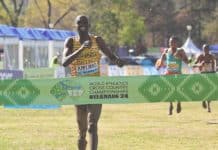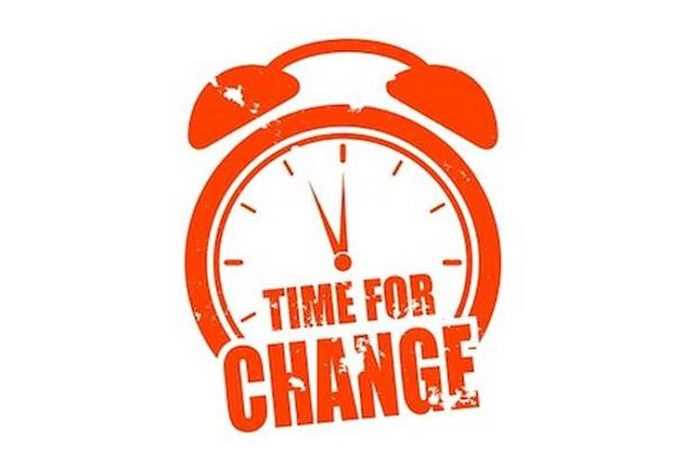The move by the United States Olympic Committee to institute revocation of recognition proceedings against USA Gymnastics drew headlines in the wake of the Larry Nassar sex-abuse scandal. But it’s hardly the first instance of the USOC getting involved – and in some cases, actually running – a national governing body.
In fact, since the Ted Stevens Olympic and Amateur Sports Act, which gave the USOC the central role in the Olympic Movement in the United States, was passed in 1978, the USOC has been embroiled in many instances of actual NGB management and/or re-arrangement. We found at least eight, not including the current gymnastics inquiry.
In fact, the question of recognition of a National Governing Body was ongoing when the then-Amateur Sports Act (the “Act”) was still being discussed in the U.S. Congress! A brief look at each of the situations we found:
∙ 1982: Wrestling
The fight between the Wrestling Division of the Amateur Athletic Union (AAU) and the newer (formed in 1968) United States Wrestling Federation had been going on for years. In 1977, the USWF applied to replace the AAU as the national governing body for wrestling.
This fight went on and on, with the USOC Executive Board siding with the AAU. But under the Amateur Sports Act, the decision of the USOC itself is not final. In fact, the Act specifically states, at 36 United States Code §2205529 that “A party aggrieved by a determination of the [USOC] under section 220527 or 220528 of this title may obtain review by any regional office of the American Arbitration Association.”
The arbitrators found that the USWF “has established its claim for recognition” that ordered the USOC to recognize it instead of the AAU. There were two 1979 court cases on this, but the USOC continued not to recognize the USWF as the national governing body for wrestling because it was not yet recognized by the international federation for wrestling, then known as FILA.
The definitive court decision came in 1982 and District Judge Ann Aldrich held in USWF vs. Wrestling Division of the AAU, 545 F.Supp. 1053 (N.D. Ohio 1982), that “Defendant WD/AAU is hereby permanently enjoined from exercising any of the powers of a national governing body … and is hereby mandatorily enjoined to resign its membership in, and sever all relationships with, FILA. Defendant USOC is hereby ordered to terminate its recognition of defendant WD/AAU as its Group A member and the national governing body for amateur wrestling in the United States. …”
The decision of the arbitrators was, in fact, the final authority in the matter. This is important to remember, as the USOC is NOT the final voice in the USA Gymnastics issue. If USA Gymnastics has its recognition as the National Governing Body revoked by the USOC – as is surely expected – the matter can then be appealed to, and decided in, arbitration, if USA Gymnastics chooses to appeal.
∙ 1995: Shooting
For decades, the National Rifle Association was the U.S. governing body for shooting, but pursuant to a complaint, the USOC organized hearings and revoked the NRA’s recognition in 1994. NRA chose not to appeal, and resigned as the NGB one day before the formal announcement. The USOC chartered USA Shooting as the new NGB in 1995, and it has been ever since. Since then, the NRA has come back to support USA Shooting as a sponsor.
∙ 1996: Karate
The situation in Karate had nothing to do with the Olympic Games, since Karate was not on the Olympic program at the time. But it was on the Pan American Games program, which the USOC is bound to support under the Act. Because the International Olympic Committee revoked its recognition of the international federation for Karate (then known as WUKO, now the World Karate Federation or WKF) in 1992, it left the USOC with no choice under the Act than to suspend the USA Karate Federation as a member.
A fierce fight between as many as five organizations ensued as the 1995 Pan-Am Games got closer and the USOC finally got everyone together for the purpose of holding trial events to select the 1995 Pan-Am Games team. In 1996, the USOC selected the USA National Karate-Do Federation as the NGB.
∙ 2004: Taekwondo
In October 2003, “U.S. Olympic Committee auditors have determined that the [U.S. Taekwondo Union’s] financial and managerial capabilities are not adequate to properly fulfill the responsibilities associated with being a National Governing Body” and the USOC proceeded to de-certify the USTU as the National Governing Body for the sport in the U.S. This one was all about money.
The USOC took over governance of taekwondo itself in 2004, and the organization was reformed and renamed as USA Taekwondo, with its first Board of Directors installed in 2006.
∙ 2006: Skeleton
A 26 April 2006 story in The New York Times started with “The United States Bobsled and Skeleton Federation, whose funding has been cut off by the United States Olympic Committee in the wake of a scandal-filled pre-Olympic period, has voted to allow the U.S.O.C. to take it over and reorganize it.”
This came – interestingly for those following the gymnastics saga – after allegations of sexual abuse and a positive drug test from a medal hopeful. The USOC gave the NGB a choice of re-organization or revocation of its NGB status and the federation opted for the former. The story noted that “The U.S.O.C. will appoint a committee to run the sport and decide how the federation will be reorganized.”
∙ 2006: Team Handball
The U.S. Team Handball Federation was the National Governing Body in the U.S. until 2006, when it was decertified by the USOC due to financial and management incompetence. The new NGB, USA Team Handball, was granted provisional status (since confirmed) in April of 2008.
Once decertification was complete, the USOC asked for applications from organizations desiring to be the new NGB. The Utah Team Handball Foundation was the successful applicant and changed its name to USA Handball and continues to operate today.
The USOC also took over some of the operations of the U.S. Fencing Association in 2008, especially in the financial management area, and forced a change in the NGB in modern pentathlon for similar reasons in the same time frame.
Throughout these adventures, there has been one constant: athlete training and competitions have continued, pretty much unabated. If the operating staff of a national governing body was untainted by the issues involved and could continue to support the athletes, it was generally kept intact by the USOC, which then brought in a management team for oversight. If not, the USOC brought in its own team to manage federation affairs.
Mike Harrigan, who conceived the President’s Commission on Olympic Sports, and was its Executive Director from 1975-77 – from which the Act developed – noted that this capacity was always seen as necessary. He said in an interview:
“In the Act, there is a provision in the Purposes, [§220505] in the beginning, [that] the USOC shall enter teams in the Olympic Games and Pan American Games, either working through a governing body or by itself, or words to that effect. That’s what gives the authority of the USOC to act as a governing body as necessary.
“And we did that because we anticipated, particularly coming out of the passage of the statute, that there would be a number of [NGB] franchise challenges, where organization A is trying to fight past organization B to be the governing body, and a condition of there being no NGB could overlap with major international competitions, including the Olympic Games.”
So if the USOC is eventually successful in revoking USA Gymnastics as the NGB for gymnastics, it will likely have to assume governance of the sport’s operations in the U.S. through the 2020 Games. And, although it has not done this for more than a decade, it will be nothing new.
Rich Perelman
Editor




















